
Esquema de organizacion evento
- Subject:
- Education
- Material Type:
- Activity/Lab
- Author:
- Maynor Barrientos
- Date Added:
- 06/30/2020

Esquema de organizacion evento
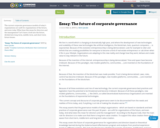
The current corporate governance models of today’s organizations are unfit for organizations of the future, and even today. What does this mean for directors and the management? Let’s have a look into the future, divided into long-term, middle-term, and short-term future lenses.
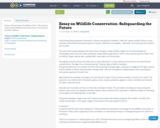
Essay on Preservation of wildlife in India - The practice of protecting Wildlife animal and rarest of rare species and their habitats.
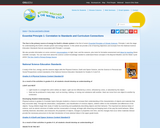
This article provide a list of learning objectives and excerpts from the K-8 content standards of the National Science Education Standards that are associated with Principle 1 of the Seven Essential Principles of the Climate Sciences. Also provided are explanations of some common misconceptions on light, heat, and the seasons, plustools for formative assessment and ideas for teaching these scientific concepts. The article appears in the free, online magazine Beyond Weather and the Water Cycle, which focuses on one of the Seven Essential Principles in each issue.
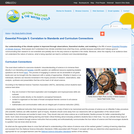
Each issue of the free, online magazine Beyond Weather and the Water Cycle explores an essential principle of climate science and climate literacy with background information, lessons, activities, original stories, and more for the K-5 classroom. This article shows the alignment of these materials with the content standards of the National Science Education Standards.
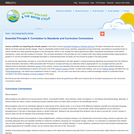
This article explores the alignment of the sixth essential principle of the climate sciences to national science education standards and its connections to the K-5 curriculum. The article also identifies some common misconceptions young students have about weather and climate. The free online magazine Beyond Weather and the Water Cycle focuses on the topics that are appropriate for young learners and introduce them to climate literacy concepts.
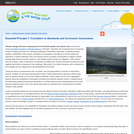
This article identifies age-appropriate national science education content standards and curriculum connections for introducing complex concepts contained in Principle 7 of the Essential Principles of Climate Sciences. The principle describes consequences of climate changes on Earth systems and human lives. The content standards will help teachers determine appropriate topics for their students. A number of resources from the online magazine Beyond Weather and the Water Cycle are highlighted for their connection to the science curriculum in the early grades. In addition, the article identifies common misconceptions about weather and the water cycle often held by students.

The Essential Project Design Elements Checklist can be used for a quick evaluation of a project's design, to see if it includes all the essential elements of rigorous, effective PBL.This checklist is a user-friendly tool, and based on our Project Design Rubric.Use this tool before, during, and after designing projects to check on their quality. Also helpful for communicating the meaning of PBL to various audiences.

Effective communication is essential for student success. Students need to know assignment due dates, course learning objectives, instructor contact information, and how to locate course readings and assignments. Effective course communication leads to students who have an increased sense of course accountability, greater investment in course material, and who achieve higher learning outcomes.
The best instructors provide student access to this information across multiple methods of delivery, and repeats it throughout the semester.
This short training course will introduce you to the basics of effective classroom communication. It will also provide access to outside learning resources.
Word Count: 2380
(Note: This resource's metadata has been created automatically as part of a bulk import process by reformatting and/or combining the information that the author initially provided. As a result, there may be errors in formatting.)
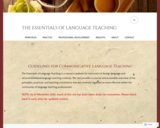
The Essentials of Language Teaching is a resource website for instructors in foreign language and second/additional language teaching contexts. The site provides a concise and accessible overview of the principles, practices, and teaching conventions that are currently regarded as most effective within the community of language teaching professionals.
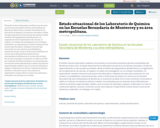
El estudio trata de sistematizar mediante una encuesta a los docentes de química del área metropolitana de Monterrey, Nuevo León, el estado situacional de los laboratorio de química y los factores asociados a la falta de experimentación en las escuelas secundarias, desde el ámbito del equipamiento del laboratorio y la organización de los experimentos de ciencias, al respecto, se realizó una investigación con un enfoque cuantitativo, no experimental, variante transversal y de alcance tipo descriptivo, mediante encuesta tipo transversal con una muestra no probabilística, intencional de tipo censal a 48 docentes de Química en servicio en las Escuelas Secundaria del área metropolitana de Monterrey, la recolección de datos fue en único momento, la encuesta se validó con 0.833 por el método de alfa de Cronbach, encontrándose que los docentes tienen dificultad para realizar las prácticas experimentales, debido a que se carece de materiales y equipos, el laboratorio no está en condiciones óptimas, inclusive, el docente conoce cómo adecuar el experimento cuando existe la carencia de sustancias y materiales, sin embargo no lo realiza.
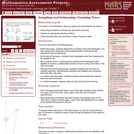
This lesson unit is intended to help you assess how well students are able to: solve simple problems involving ratio and direct proportion; choose an appropriate sampling method; and collect discrete data and record them using a frequency table.
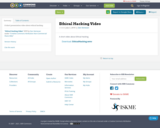
A short presentation video about ethical hacking
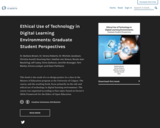
Short Description:
This book is the result of a co-design project in a class in the Masters of Education program at the University of Calgary. The course, and the resulting book, focus primarily on the safe and ethical use of technology in digital learning environments. The course was organized according to four topics based on Farrow’s (2016) Framework for the Ethics of Open Education.This is the first of 2 Versions of this pressbook. Click on Volume 2 for information.
Long Description:
This book is the result of a co-design project in a class in the Masters of Education program at the University of Calgary. The course, and the resulting book, focus primarily on the safe and ethical use of technology in digital learning environments. The course was organized according to four topics based on Farrow’s (2016) Framework for the Ethics of Open Education. Students were asked to review, analyze, and synthesize each topic from three meta-ethical theoretical positions: deontological, consequentialist, and virtue ethical (Farrow, 2016). The chapters in this open educational resource (OER) were co-designed using a participatory pedagogy with the intention to share and mobilize knowledge with a broader audience. The first three chapters in the book discuss specific ethical considerations related to technologies such as Artificial Intelligence (AI) , social networking services (SNS), and 3D printing. The next four chapters shift to a broader discussion of resource sharing, adaptive learning systems, STEM, and assistive technologies. The final two chapters discuss admissions and communications that need to be considered from an institutional perspective. In each of the nine chapters, the authors discuss the connection to the value of technology in education, and practical possibilities of learning technologies for inclusive, participatory, democratic, and pluralistic educational paradigms.
Word Count: 56853
ISBN: 0-88953-438-1
(Note: This resource's metadata has been created automatically by reformatting and/or combining the information that the author initially provided as part of a bulk import process.)
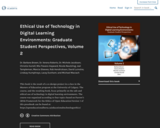
Short Description:
This book is the result of a co-design project in a class in the Masters of Education program at the University of Calgary. The course, and the resulting book, focus primarily on the safe and ethical use of technology in digital learning environments. The course was organized according to four topics based on Farrow’s (2016) Framework for the Ethics of Open Education.
Long Description:
Click on Volume 1 to read the first book in this series.
This book is the result of a co-design project in a class in the Masters of Education program at the University of Calgary. The course, and the resulting book, focus primarily on the safe and ethical use of technology in digital learning environments, and is the second volume in the series. The course was organized according to four topics based on Farrow’s (2016) Framework for the Ethics of Open Education. Students were asked to review, analyze, and synthesize each topic from three meta-ethical theoretical positions: deontological, consequentialist, and virtue ethical (Farrow, 2016). The chapters in this open educational resource (OER) were co-designed using a participatory pedagogy with the intention to share and mobilize knowledge with a broader audience. The first section, comprised of four chapters, focuses on topics relating to well-being in technology-enabled learning environments, including the use of web cameras, eproctoring software, video games, and access to broadband connectivity. The second section focuses on privacy and autonomy of learners and citizens in a variety of contexts from schools to clinical settings. In each of the seven chapters, the authors discuss the connection to the value of technology in education, and practical possibilities of learning technologies for inclusive, participatory, democratic, and pluralistic educational paradigms. The book concludes with reflections from the course instructor gained over two iterations of teaching the course.
Word Count: 40312
ISBN: 978-0-88953-472-8
(Note: This resource's metadata has been created automatically by reformatting and/or combining the information that the author initially provided as part of a bulk import process.)

Word Count: 47907
(Note: This resource's metadata has been created automatically by reformatting and/or combining the information that the author initially provided as part of a bulk import process.)
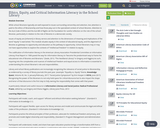
While school librarians typically are well exposed to issues surrounding censorship and selection, less attention is paid to the ethics of librarianship and how those play out in the specialized context of school libraries. Attention to the ALA Code of Ethics and the ALA Bill of Rights set the foundation for careful reflection on the role of the school librarian, particularly in relation to the role of libraries in a democratic society.Issues of equity are [inherent] in library service and attention to the dimensions of meaning and implications of the word “equity” is warranted. This module situates equity in the context of educational equity, and the alignment of libraries as gateways to opportunity and education as the pathway to opportunity. School librarians may or may not have opportunities to explore the contexts of “intellectual freedom” in relation to equity.The codification of information literacy in the American Library Association Presidential Committee on Information Literacy Final Report in 1989 paved the way for information literacy to “become the predominant way to frame the educational role of libraries and librarians.” (Seale, 2013, “The Neoliberal Library” in Gregory and Higgins) As such, inquiring into the complexities and nuances of intellectual freedom and equal access to information is essential to understanding the school librarian’s role and responsibilities.Library and school library publications are increasingly recognizing the relevance of social justice to librarianship, as evidenced by a survey of library journals this past year. (example: “Equality vs. Equity” theme, Knowledge Quest, Volume 45, No. 3, January/February, 2017; “Social Justice Symposium” by Erin Hooper in VOYA, June 2017) Recognizing the power of the librarians to not only hold space for critical discourse but to also impact the shape and tenor of that discourse is the first step to fully owning the responsibility that comes with that power.A particularly relevant and useful resource is Information Literacy and Social Justice: Radical Professional Praxis, edited by Lua Gregory and Shana Higgins, Library Juice Press, 2013Learning Objectives:Participants will model, coach, and support "efficient and ethical information-seeking behavior" (Standard 3: Information & Knowledge 3.1)Participants will support flexible, open access for library services and model and communicate the legal and ethical codes of the profession. (Standard 3: Information & Knowledge 3.2)Participants practice the ethical principles of their profession, advocate for intellectual freedom and privacy, and promote and model digital citizenship and responsibility. (Standard 5: Program Management and Administration 5.2)Participants will understand, model, and share how open education practice brings a transformative shift from a proprietary and industrial education model to a participatory education model. (ISKME: Leadership and Advocacy - Advancing Open Practice)
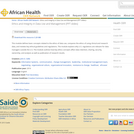
This module defines basic concepts related to the ethics of data use, compares the ethics of using clinical and research data, and reviews key ethical guidelines and regulations. The module explains why U.S. regulations are relevant for data managers outside the U.S. The module outlines how key ethics concepts affect data retention, sharing, security, ownership, and analysis as well as publication of research results.
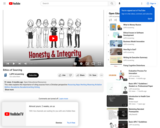
This video explains the importance of citing sources from a Christian perspective.
Made with Vyond.
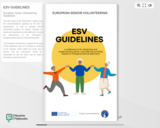
This basic guideline is a tool addressed to all the seniors and people working in the social field who would like to have a thorough knowledge of what the European Senior Volunteering (ESV) is about. This guideline aims to reach organizations, institutions, seniors, youth and leaders who are willing to organize their first activities addressed to seniors under the EU Programmes or other volunteering actions.
This final output of the “ERASVUS+” project represents the recommendations gathered by the four partner organizations, on how to manage international volunteering projects for seniors, focusing on their needs and expectations and by taking into consideration the effectiveness of the intercultural and intergenerational aspects of the learning paths.
"The European Commission's support for the production of this publication does not constitute an endorsement of the contents, which reflect the views only of the authors, and the Commission cannot be held responsible for any use which may be made of the information contained therein."
The freely downloadable version is available on the official website of the project:
https://erasmuspluswebsite.wixsite.com/erasvus